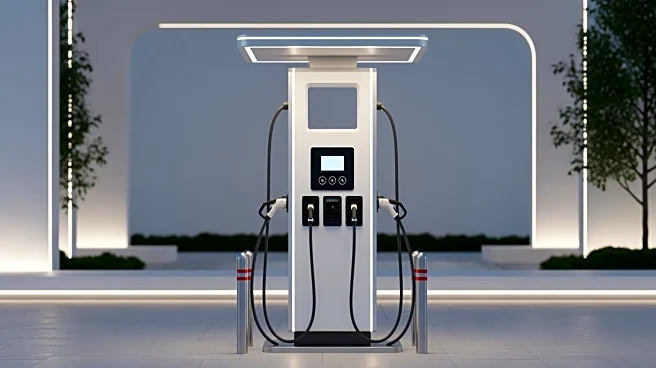What's Happening?
In October, Sweden's electric vehicle (EV) market saw plugin EVs capture 65.7% of the market share, an increase from 62.2% year-on-year. Battery electric vehicles (BEVs) accounted for 36.2% of this share, while plugin hybrid electric vehicles (PHEVs)
made up 29.5%. Despite this growth, the overall auto volume decreased by 4% compared to the previous year, totaling 24,078 units. The Volvo EX40 emerged as the best-selling BEV for the month, continuing its dominance in the market. Discussions are underway regarding the potential reintroduction of a targeted BEV incentive scheme in early 2026, aimed at lower-income households in rural areas, pending EU funding.
Why It's Important?
The slowing transition in Sweden's EV market highlights challenges in achieving significant growth in BEV sales, which are crucial for reducing carbon emissions and advancing sustainable transportation. The persistence of combustion-only powertrains, holding a 23% market share, underscores the need for policy interventions to accelerate the shift towards cleaner energy vehicles. The potential incentive scheme could play a pivotal role in boosting BEV adoption, particularly among lower-income groups, thereby supporting Sweden's environmental goals and aligning with broader EU sustainability targets.
What's Next?
The Swedish government is considering implementing a new incentive scheme for BEVs in 2026, which could stimulate market growth if approved. This initiative may focus on rural areas and lower-income households, potentially increasing BEV accessibility and adoption. Stakeholders, including automakers and environmental groups, are likely to monitor these developments closely, as they could influence market dynamics and investment strategies. The ongoing discussions and potential policy changes will be critical in shaping the future of Sweden's EV market.
Beyond the Headlines
The slow pace of BEV adoption in Sweden raises questions about the effectiveness of current policies and market strategies. A Zero Emission Vehicle (ZEV) mandate, similar to those in other countries, could be considered to enforce stricter emissions standards and drive BEV growth. Additionally, the economic upswing in Sweden, with a 2.4% GDP growth in Q3 2025, may provide a favorable environment for implementing new incentives and fostering innovation in the automotive sector.

















